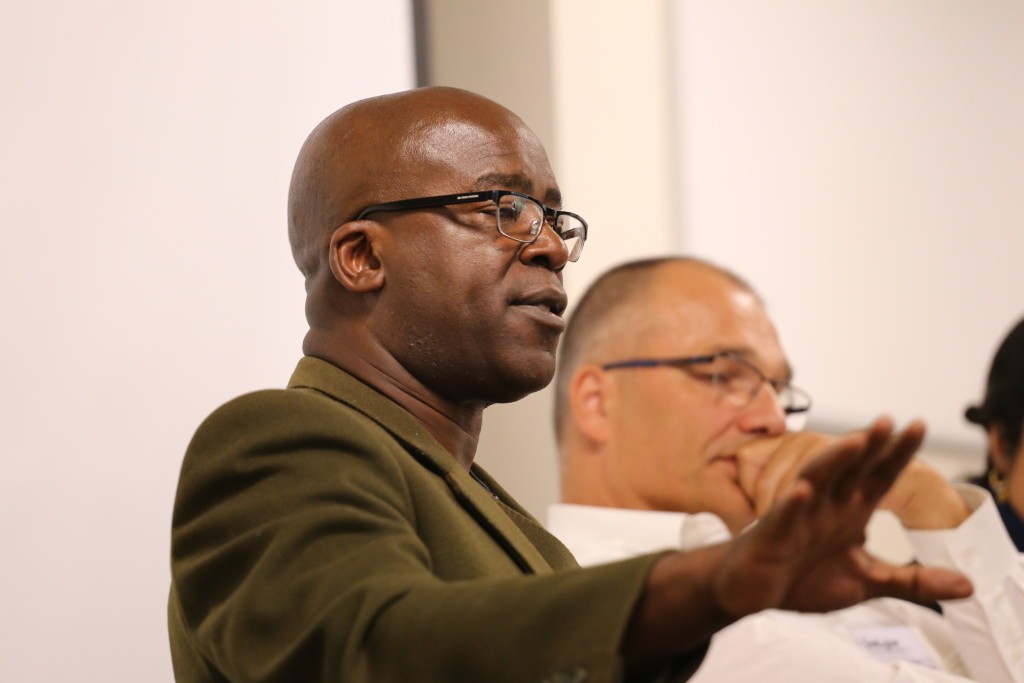Milton Brown is chief executive of Kirklees Local TV, a social enterprise committed to documenting the stories of local communities in West Yorkshire. He is taking a part-time PhD at the University of Huddersfield. In this blog, he explores the nature of co-produced research and how universities and community groups can work together.
In June I attended the Soundings & Findings: A Connected Communities Research Conference. Held across three days, the conference was very informative, with excellent networking opportunities and I got a chance to understand Imagine: Connecting Communities Through Research project, of which I am part, more. Prof Kate Pahl from the University of Sheffield gave the opening keynote and got the conference off to a great start and asked the critical questions “What do we do when we don’t agree”?

The question Kate proposed was about universities across the country and internationally in co-producing work with community groups, social enterprises and non-academics. I found this question really resonated with me. I questioned the institutional culture of universities and the diverse nature of community-based organisations, social enterprises and voluntary groups: how can they work together? Who has the power? How much is discussed in building coherent sustainable partnerships with time constraints looming in the background for all involved? How do we listen with intent and action? Finally, how do you negotiate the long term benefits of these relationships?
I started to think more about the vulnerable nature of community groups, social enterprises, and voluntary groups and wondered if these groups can compete and be strong enough to negotiate the best deal for their organisations and the communities they represent. I came to the conclusion that it starts with being open, honest and clear about your organisation’s values, respect and, most of all, patience.

The conference did give me an increased optimism, motivation and confidence to see how and what universities want from communities in co-production in building sustainable partnerships. The only improvement for the conference I would suggest is to give community-based organisations much more exposure, sharing the platform and space of a conference equally. Due to the conference being held in the middle of Ramadan, I felt it excluded quite a number of our Muslim partners who would have enriched the conference with their perspective.
As part of my PhD, I have been working on a video production called 21st Century Muslim. I have lived and worked extensively in Muslim communities over the last 20 years. However, this project has really opened my eyes to how British Muslims feel about their identity, how they respond to the challenges of nationalism and identity and where they place themselves as British citizens. It raises the question about how universities and postgraduate researchers connect with British-born Muslims in the pursuance of positive civic engagement and influencing local and national policy.
My PhD is an auto-ethnographic psycho-analytical study of the African Descent Community navigating race from the 1960s to the present. The methodology is to produce a 45 minute documentary, in addition to writing 50,000 words, about the identity of the African Descent Community in the 20th and 21st centuries and the role of film-making in understanding such identities and experiences.
This has been like an emotional rollercoaster. Listening and feeling to what individuals have to say about the journey of the African Descent Community in politics, representation, education, law, employment and urban renewal programmes has been quite disturbing, aspirational, very challenging and I have found it hard to find a safe space to process some of the emotions individuals have shown. I have conducted 26 interviews so far and have covered West Yorkshire and parts of Manchester. In the coming months I aim to travel to Birmingham and London I will finish filming sometime in the summer of 2017.
The Soundings and Findings conference suggests that the role that universities have in connecting communities needs to be undertaken with sensitivity to the needs of community partners and members. Universities and the academics within them need to take into account the investment of emotion of the people in the communities who want to work with them. This means ensuring that collaboration and co-production recognize the needs of communities.
Watch this space

